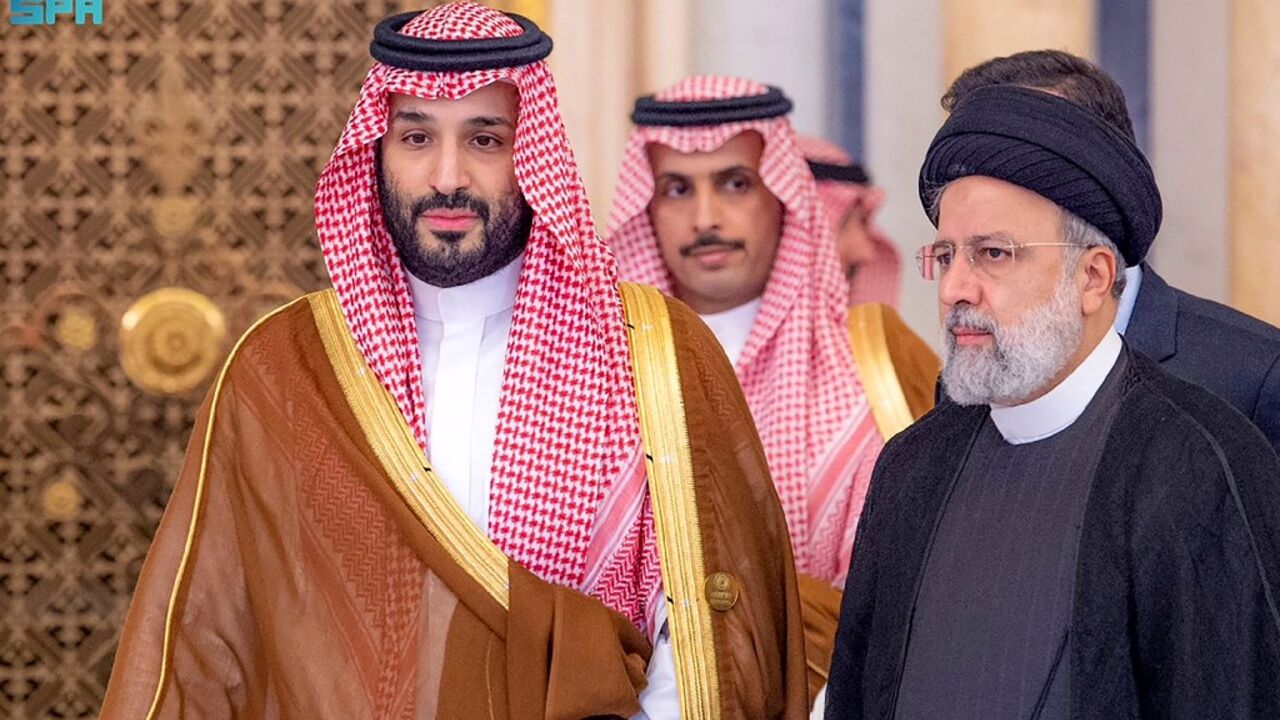Saudi Arabia’s geopolitical moves
Can the kingdom be trusted to broker lasting peace, especially when its own internal and external challenges, including its human-rights record, remain prominent?
By Amine Ayoub
JNS
Nov 18, 2024

Saudi Arabia has long positioned itself as
a central player in the Middle East, aiming to influence regional
stability and global geopolitics. The Riyadh summit earlier this month,
where Crown Prince Mohammed bin Salman addressed key issues facing the
Muslim world, brought this role into sharper focus. However, as the
kingdom seeks to navigate complex geopolitical tensions—such as its
evolving relationship with Iran, its criticisms of Israel and its
involvement in ongoing conflicts like Yemen—the question arises: Can
Saudi Arabia be trusted to broker lasting peace, especially when its own
internal and external challenges, including its human-rights record,
remain prominent?
At the heart of the Riyadh summit was a
discussion on Palestinian statehood and the ongoing conflict with
Israel. In a notable departure from its previous diplomatic trajectory,
bin Salman took a more assertive stance, openly condemning Israel’s
actions in Gaza and accusing it of genocide against Palestinians. He
emphasized the need for the international community to ensure Israel
respects Iranian sovereignty, signaling a potential shift in Saudi
Arabia’s stance towards Israel and a move toward closer ties with
Tehran.
This stance appeared to mark a clear pivot away from
previous talks aimed at normalizing relations with Israel, which had
been a priority under former President Donald Trump’s first
administration. While Saudi Arabia had expressed interest in recognizing
Israel in exchange for security guarantees and regional stability,
particularly in light of shared concerns about Iran, the kingdom’s
rhetoric at the Riyadh summit highlighted growing divisions in its
foreign policy. This shift is significant, especially given that Saudi
Arabia’s rapprochement with Iran in 2023, brokered by China, has already
reshaped the regional diplomatic landscape.
Saudi Arabia’s
growing ties with Iran, along with its criticisms of Israel, suggest a
more independent foreign policy that is less reliant on the United
States than it has been in recent decades. This makes Saudi Arabia’s
role as a potential peace broker more complex. While Riyadh’s attempts
at fostering diplomacy—such as encouraging dialogue between Iran and its
regional allies—have been welcomed by some, its ability to mediate
without bias, particularly in the Israeli-Palestinian conflict, remains
an open question.
The trustworthiness of Saudi Arabia as a
mediator in regional conflicts must be assessed in terms of its internal
and external challenges. On the one hand, Saudi Arabia’s geopolitical
clout, bolstered by its vast oil wealth and strategic position in the
Gulf, makes it an important player in shaping regional outcomes. On the
other hand, its internal governance and human-rights issues raise
concerns about its ability to advocate for genuine peace that
prioritizes the welfare of ordinary people, especially those living in
conflict zones.
Internally, Saudi Arabia has faced ongoing
criticism for its human-rights record. The government’s suppression of
political dissent, its treatment of women and minority groups, and the
use of harsh measures against activists and journalists, including the
high-profile killing of Washington Post reporter Jamal
Khashoggi in 2018, remain major points of contention. These issues have
led many to question Saudi Arabia’s commitment to universal human
rights, especially when its foreign policy often appears driven by
pragmatic, authoritarian priorities.
For instance, the war in
Yemen, which Saudi Arabia has led since 2015, has been a focal point of
international criticism due to the humanitarian crisis it has created.
Tens of thousands of people have died, and millions more have been
displaced, yet the conflict shows little sign of resolution. The
Saudi-led coalition has faced accusations of war crimes, including
indiscriminate airstrikes that have killed civilians and targeted vital
infrastructure, further complicating its image as a promoter of peace.
This
contradiction—between Saudi Arabia’s role as a peacemaker on the world
stage and its repressive tactics at home and in foreign
interventions—casts doubt on whether the kingdom is a reliable or
impartial actor in conflict resolution.
Saudi Arabia’s recent
rhetoric, particularly at the Riyadh summit, underscores its desire to
reshape its role in the region. However, it is important to consider
whether these efforts are driven by a genuine commitment to peace, or
whether they are part of a broader geopolitical strategy. MBS’s
condemnation of Israel and his call for international action to protect
Iran’s sovereignty may reflect Riyadh’s evolving relationship with
Tehran, but they could also be seen as an attempt to consolidate power
and influence in a volatile region.
Moreover, Saudi Arabia’s
increasing reliance on China as a diplomatic partner has allowed it to
broker important agreements with Iran, signaling a shift away from the
West. While this shift could help reduce tensions in the region, it also
means that Saudi Arabia’s conflict-resolution efforts may be influenced
by its strategic alliances, potentially limiting its ability to act as a
neutral party.
The kingdom’s role in the Israeli-Palestinian
conflict is another example of this complexity. On the one hand, Saudi
Arabia has historically been a vocal supporter of Palestinian rights.
Yet, its willingness to normalize relations with Israel in exchange for
security arrangements and other benefits underscores the transactional
nature of its diplomacy. The apparent contradiction between MBS’s
condemnation of Israeli actions in Gaza and his interest in normalizing
relations with Israel only months ago illustrates how Saudi Arabia’s
foreign policy is often driven by shifting geopolitical interests rather
than a consistent ethical stance.
For Saudi Arabia to be truly trusted as a facilitator of lasting peace, it would need to demonstrate a commitment to resolving conflicts impartially, without ulterior motives, and show a willingness to address its own internal human-rights issues. Until such changes occur, the country’s ability to lead a meaningful peace process, especially in its own neighborhood, will remain a topic of skepticism and debate.
No comments:
Post a Comment